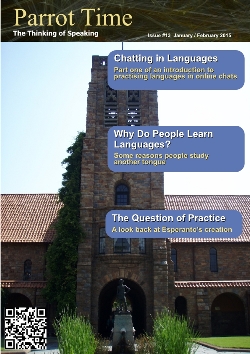The Cost of Free Language Resources

|
You are going to learn a new language. You have talked with others, done the research, and made the choice of which you want to tackle. That is the first part of the process. Now you need to start gathering the various materials and resources you are going to use for studying. In the pre-internet days, you would most likely be looking at courses being offered in your area. If you felt more independent, you would be browsing your nearby stores for course books, dictionaries, and audio lessons. What you were able to find was limited to what you could obtain locally and what you could afford. When people take it for granted that others will produce something for free, they often start developing the attitude that the person now owes it to them. If taking a course is more your style, you can access classes in universities and independent companies on a global scale and engage in long-distance learning. In the modern age, you are given full access to materials from all over the world. You can find books and audio courses for sale on huge sites like Amazon and Ebay, or you could buy directly from companies like Pimseleur, Rosetta Stone, or Living Languages. The added bonus is that these courses and materials can be found for a much larger variety of language, so the problem of availability is almost completely eliminated, although you may still have a problem finding stuff for lesser known languages. Cutting the Cost  Pre-internet language learning: paid classes So the only other major limiting factor would be the cost, and even that can be largely dismissed, because the internet also gives you access to a multitude of free learning sources and aids. Not only can you find inexpensive or free language books and audios, but there are also countless free websites and programs to make learning your chosen new language a breeze. Two of the most popular free learning websites that people adore are Memrise and Duolingo. Here, they can select from tons of languages and lessons created by other language lovers to pick-up the vocabulary and grammar they need. Other sites like Lang-8 give them a chance to practise their writing skills and have others correct them. There are other ways you can learn without spending anything. People meet on social networks and in communities to converse in various languages, so you can easily find a partner who will help you. Language exchange or tandem sites, like WeSpeke and My Language Exchange are great places to find partners to learn from and practise with. In short, you can find ways to learn, all for free. And free is good! Legality  Modern language learning: choose your app The methods I have mentioned so far for getting resources are all quite legal and encouraged. But what if you really want that Living Language French course or a Japanese Pimsleur course but cannot afford it, there are places online you can get those as well without paying for them. Because the internet is global and actually created to be impossible to control, there is a lot of piracy of music, movies, and even books. Think of it as the biggest Black Market in the world. People who get their materials from such places always have ways to justify what they are doing. Some will explain that they would pay for the stuff if they could afford it, but since they cannot, they have no choice but to just take it. Others will take on an attitude that the companies that produce such stuff are greedy, and therefore deserve to be stolen from. Or perhaps those companies just make so much money that they will not possibly miss you not paying for a copy. It is not that much, after all. Now, I am not trying to preach anything, since many of us have probably used such materials before and made similar justifications. It is important, however,to recognize that our society has largely accepted an entitlement mentality. We want things for free, and if they are not free, then we feel justified in taking them. Nothing is Free  Even if something is labelled as free, someone is paying for it The problem with the view point that we want all our materials to be free (or we find a way to get them for free) is that nothing is ever created or produced without something going into it, like time, effort, and money. Sites like Memrise still require people to build not only the courses but the site itself, as well as paying for the computer that runs the site. People have given much of themselves so that you can have a language learning resource at no cost to you. We can see the same things in books. Even if you can get a free book or a book for free (one legal, one illegal), someone still spent a lot of time writing that book, and that time has value, as does the knowledge and experience they used to create it. In fact, there is nothing worth having that did not involve someone doing work in its creation. Now the argument can be made that many people choose to do this on their own. The are creating the materials and making them available to everyone, without asking to be paid, so everything is fine, right? I would have to give that a tentative answer of "yes", but there is an underlying problem with that which is rarely spoken about. It is the hidden cost of using free materials: motivation. Why Create?  Creating materials takes a lot of work and planning Despite what we might want to believe, the adage "Money makes the world go around" is true. Unless we find a way to get by on almost nothing or have the luxury of having all our expenses paid for by someone else, we all need money to buy what we need to survive. That is true even for the people who create language stuff. They can make that money either by selling what they create or by getting paid for other work they do. You also want to be paid for work you do because without that money, your own needs and wants are not met. So we come to the paradox of wanting everything we have to buy as being free, but also feeling like we should be compensated for the work we do. In a utopian world, perhaps everything would be completely free, and we would never have to worry about money at all. Sadly, that is unlikely and even if it were, it still has the problem of motivation. Working, creating, building - these are all things we can do purely because we wish to. There are always people that want to help others and will do it without thought of compensation. They will write books, create courses, set up websites, all to add to the knowledge collective, just because it makes them happy to do so. The individuals that will engage in this selflessness are part of a very small group, however. Most people require a greater motivation than simply "makes me happy". How many times have you taken on a large project for someone else's benefit in which you got nothing in return? Probably few, if any at all. This is not because people are greedy (although some might be focusing just on money, I admit). It is because we want to feel needed and appreciated, at the very least. Above that, we need some kind of compensation for our work so that we can afford to also live the lives we want. |
| The Cost of Free Language Resources | ||||
| Writer: | Erik Zidowecki | |||
| Images: | ||||
| ||||
All images are Copyright - CC BY-SA (Creative Commons Share Alike) by their respective owners, except for Petey, which is Public Domain (PD) or unless otherwise noted.
comments powered by Disqus


















